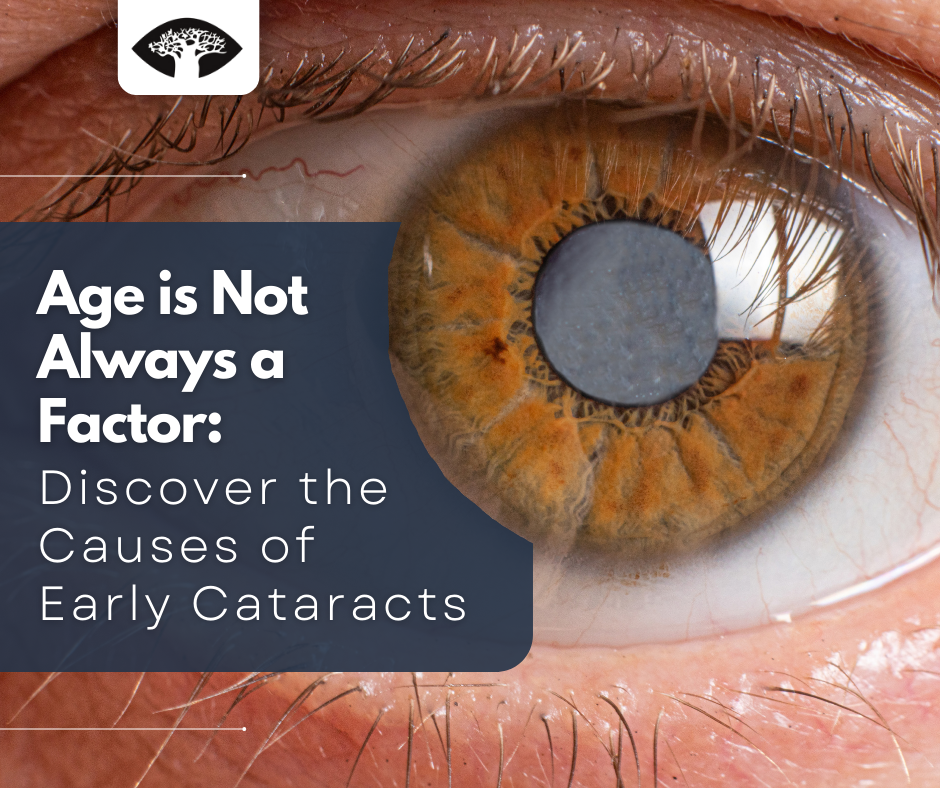
Cataracts are the clouding of the eye’s natural lens, which can lead to vision loss. This clouding can occur gradually over time and is often a normal part of aging. However, cataracts can also develop at an early age due to certain risk factors. It is important to be aware of the causes and symptoms of early cataracts in order to prevent further vision loss.
Causes of Early Cataracts
There are several causes of early cataracts, including:
• Prolonged Exposure to Sunlight: Prolonged exposure to ultraviolet (UV) rays from the sun can damage the eye’s lens and lead to cataracts. Wearing sunglasses and hats with wide brims can help protect the eyes from the sun’s UV rays.
• Diabetes: People with diabetes have an increased risk of developing cataracts at an early age. It is important for diabetic patients to have regular eye exams and to manage their diabetes in order to reduce the risk of early cataracts.
• Family History: A family history of cataracts increases the risk of developing early cataracts. It is important to discuss any family history of cataracts with your ophthalmologist so that they can monitor you more closely.
• Medications and Drugs: Certain medications and drugs can increase the risk of early cataracts. These include high-dose steroids, certain antibiotics, and certain chemotherapy drugs. It is important to discuss any medications or drugs you are taking with your ophthalmologist and to make sure they are in line with your overall health goals.
• Trauma or Injury: Trauma or injury to the eye can cause damage to the lens and lead to early cataracts. Wearing protective eyewear during sports or activities can help to reduce the risk of eye injury.
• Smoking: Smoking has been linked to an increased risk of developing early cataracts. Quitting smoking can help to reduce the risk of developing cataracts.
Symptoms of Early Cataracts
The most common symptom of early cataracts is a decrease in vision. This may include blurred vision, difficulty seeing in dim light, and glare from lights. Other symptoms of early cataracts include double vision, seeing halos around lights, and a change in the color of the eye. If you experience any of these symptoms, it is important to see your ophthalmologist for an eye exam.
Diagnosis and Treatment of Early Cataracts
Cataracts are diagnosed with a comprehensive eye exam. During the exam, your ophthalmologist will examine your eyes with a slit lamp and use special drops to make the lens of the eye more visible. The ophthalmologist may also take pictures of the eye to look for signs of early cataracts.
Early cataracts can be treated with a variety of methods, depending on the severity of the condition. In mild cases, lifestyle changes such as wearing sunglasses and avoiding bright lights can help reduce symptoms. For more severe cases, surgery is often recommended to remove the cloudy lens and replace it with an artificial one. This surgery is typically safe and effective, but it is important to discuss all options with your ophthalmologist before deciding on a treatment plan.
Conclusion
Early cataracts are a serious condition that can lead to vision loss if left untreated. It is important to be aware of the causes and symptoms of early cataracts so that they can be diagnosed and treated as soon as possible. If you are experiencing any symptoms of early cataracts, it is important to see your ophthalmologist for an eye exam.

